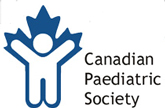Liberals agree to revoke spanking law in response to TRC call
OTTAWA The Globe and Mail Sunday, Dec. 20, 2015, by Gloria Galloway
In promising to enact all of the recommendations of the Truth and Reconciliation Commission, the federal Liberals have agreed to remove a section of law that allows parents to spank their kids without fear of prosecution.
Groups that oppose corporal punishment of children have spent many years urging successive governments in Ottawa to repeal Section 43 of the Criminal Code that permits parents and teachers to use reasonable force to correct the behaviour of youngsters in their care.
The Truth and Reconciliation Commission, which heard thousands of tales of physical abuse inside Indian residential schools, said in its final report that "corporal punishment is a relic of a discredited past and has no place in Canadian schools or homes." The repeal of Section 43 was No. 6 on a list of 94 "calls to action" included in the report, which was made public last week.
When asked if Prime Minister Justin Trudeau's promise to act on every TRC recommendation meant repealing the so-called spanking law, a spokesman for Justice Minister Jody Wilson-Raybould would only say the government remains committed to implementing all of the commission's calls to action.
In 2004, the Supreme Court of Canada ruled that physical force was acceptable within certain bounds - it cannot be used on children under the age of 2, it cannot involve implements such as a paddle or a belt and blows to a child's head are not allowed. Teachers and faith-based groups praised the decision, saying the people who are responsible for raising children must have the leeway to decide when moderate physical discipline is required.
A move to open parents and teachers who spank children to the possibility of criminal charges is unlikely to pass through Parliament unopposed.
But Kathy Lynn, the chair of a British Columbia-based organization called Corinne's Quest, which opposes legalized spanking, says her group is "thrilled" with the TRC's recommendation. Ms. Lynn says the repeal of the spanking law is one of the calls to action that the Prime Minister can do quickly and easily. And she does not believe it will meet a wall of resistance.
"I have even been talking to some of the faith groups and they are quite happy with it," she said in a telephone interview. "There will be a little bit of push back, but not like there used to be. We are really becoming a country that believes we do not want to be violent and, you know, violence in the home starts with hitting kids."
Some religious groups rely on a passage from the Bible's Old Testament that says "He that spareth his rod hateth his son: but he that loveth him chasteneth him betimes" to justify the use of force in child discipline. It is an adage that is sometimes shortened to: "Spare the rod, spoil the child."
But Ms. Lynn said there are different ways the passage can be interpreted. "The rod actually was used to direct and guide and protect the lambs; it wasn't used to hit them," she said.
To those people who argue that they were spanked when they were children and believe it is their right to raise their children in the same way, she said we now know better. "As we go along, every generation does things differently better because there's more research out there," Ms. Lynn said.
Still, there are those who say the removal of Section 43 would represent unwanted interference in a parent's right to raise their child as they see fit.
That is the position that Conservative MP Rob Nicholson took when he was justice minister in 2011 and his views have not changed, said his executive assistant, Cheri Elliott. "We believe that parents are in the best position to raise their children," she said. "It is up to them, not the government, to decide what is best for their children so long as it is within reason and not abuse."
And even though the strap is no longer used in Canadian schools, teachers fear taking away the law could leave them vulnerable to charges in cases in which they are required to use force - breaking up schoolyard fights, for instance.
Heather Smith, the president of the Canadian Teachers' Federation, which opposed the repeal of the spanking provision in the Criminal Code when it was before the Supreme Court 11 years ago, said her organization has not changed its position.
"There are times that teachers need to physically intervene with students," Ms. Smith said. "Section 43 certainly does not give teachers or any other adult a licence to abuse, but what it does do is provide some protection if physical intervention is required."
But Ms. Lynn says there is a principle in law called de minimis that prevents Crown attorneys from prosecuting trivial offences.
"Having the law says that we, in Canada, legally approve of the legal assault of children," she said. "Do we want to live in a country that, in fact, defines when and how to hit children? That is just appalling."




CanadianCRC Editor's Note:
Truth and Reconciliation Commission said in its final report that 'corporal punishment is a relic of a discredited past and has no place in Canadian schools or homes'